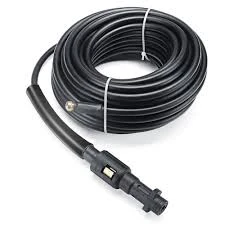Brake Hose Connector for Enhanced Vehicle Safety and Performance
Understanding Brake Hose Connectors Importance and Function
Brake hose connectors are critical components in the automotive braking system, serving as the vital link between the flexible brake hoses and the rigid brake lines or the brake calipers. The functionality and safety of a vehicle’s braking system heavily depend on the reliability and integrity of these connectors.
Typically made from durable materials like brass, stainless steel, or aluminum, brake hose connectors are specifically designed to withstand extreme pressure and harsh environmental conditions. Their primary function is to ensure a secure connection that prevents fluid leakage while allowing for the flexible movement of brake hoses. This flexibility is essential, especially in vehicles where suspension movement can cause changes in the alignment of the brake components.
One of the key aspects of brake hose connectors is their ability to endure the high pressures generated within the braking system. When a driver applies the brake pedal, hydraulic fluid is forced through the brake lines and hoses, activating the brake calipers. Therefore, any failure or leakage at the connector can lead to a significant loss of braking pressure, potentially resulting in brake failure and compromising vehicle safety.
brake hose connector

In addition to their mechanical properties, brake hose connectors must also meet stringent industry standards concerning safety and performance
. Regular inspections are essential to check for any signs of wear, corrosion, or damage. If a connector is found to be compromised, it should be replaced immediately to maintain the overall efficiency of the braking system.Installation of brake hose connectors must also be performed with precision. Improper installation can lead to misalignment, which may cause stress on the hose and connector, leading to premature failure. Automotive mechanics should take special care to follow the manufacturer's specifications during installation and to use the correct torque settings.
Furthermore, understanding the various types of brake hose connectors is beneficial. There are different designs, including banjo bolts, flare fittings, and push-to-connect types, each suited for specific applications. Choosing the right type is crucial for ensuring compatibility with the brake system in question.
In conclusion, brake hose connectors, although often overlooked, play a significant role in vehicle safety and performance. Regular maintenance, proper installation, and timely replacement of these connectors are essential practices that contribute to the overall effectiveness of the braking system. As vehicles evolve with more advanced technologies, the importance of high-quality brake hose connectors cannot be understated. Ensuring their integrity is a fundamental aspect of keeping our roads safe.
-
Ultimate Spiral Protection for Hoses & CablesNewsJun.26,2025
-
The Ultimate Quick-Connect Solutions for Every NeedNewsJun.26,2025
-
SAE J1401 Brake Hose: Reliable Choice for Safe BrakingNewsJun.26,2025
-
Reliable J2064 A/C Hoses for Real-World Cooling NeedsNewsJun.26,2025
-
Heavy-Duty Sewer Jetting Hoses Built to LastNewsJun.26,2025
-
Fix Power Steering Tube Leaks Fast – Durable & Affordable SolutionNewsJun.26,2025

